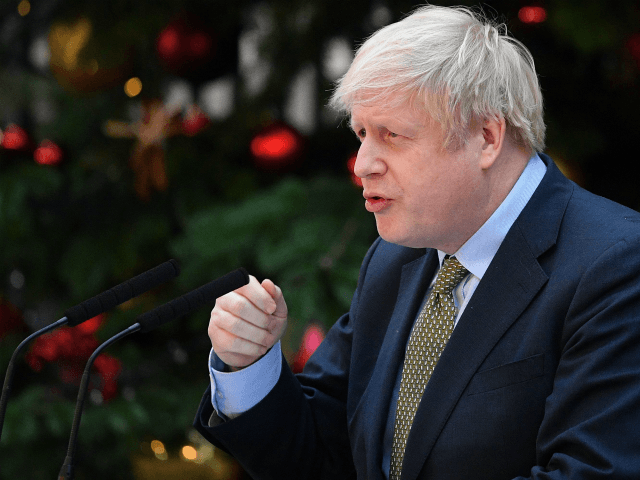Prime Minister Boris Johnson is set to welcome 109 new Conservative Party MPs to Westminster on Monday before kick-starting his plans for exiting the European Union.
The Conservative Party won the December 12th general election with an strong80-seat majority, many of the new Members of Parliament coming from Leave-backing constituencies that traditionally voted Labour.
While Christmas is just over one week away, the prime minister is preparing for a series of parliamentary procedures to ensure that the UK leaves the EU, as pledged, by January 31st, 2020.
On Monday, he will be welcoming the new cohort to Westminster, likely to remind them of what they were elected for: to get Brexit done.
On Tuesday, MPs will elect the new Speaker of the House of Commons, Lindsay Hoyle, who is replacing Remainer John Bercow. Later on, Speaker Hoyle will begin swearing in the new MPs, which can take a few days to complete.
The Queen’s Speech scheduled for Thursday, at which the monarch will open parliament by reading a speech prepared by ministers that outlines the Conservative government’s programme for the next five years. Given the content of the manifesto and election campaign, it seems all but certain Brexit, law and order, and healthcare will prominently feature.
After the speech is delivered, MPs will begin debating its contents, which can take days more, leading up to Christmas.
— Brexit Day, January 31st, 2020 —
It is believed that the prime minister could bring back his Withdrawal Agreement Bill on Friday for a second reading before the House rises — goes into recess — for Christmas. The bill already passed the first hurdle in the previous parliament. MPs will also continue debating the Queen’s Speech, and with the large majority, it is likely to pass. A monarch’s speech has not been voted down since 1924.
A Number 10 source told the BBC: “The PM has been very clear that we have a responsibility to deliver a better future for our country and that we must repay the public’s trust by getting Brexit done.
“That’s why the first piece of legislation new MPs will vote on will be the Withdrawal Agreement Bill.”
The prime minister is also set this week to reorganise his top team in the Cabinet.
Lawmakers will likely return to the House of Commons properly on January 6th, to continue moving the Brexit bill through parliament before the January 31st deadline.
In the UK, for a bill proposed in the House of Commons to become law, it must travel through the lower house for a first and second reading before going to committee stage, reporting stage, and then a third reading before moving to the House of Lords. In the upper house, it will go through similar steps — first reading, second reading, committee stage, reporting stage, third reading — before consideration of amendments and then Royal Assent.
Generally, this can take months, but in the previous Parliament desperate moves by anti-Brexit activists — aided and abetted by then-speaker John Bercow — saw laws passed in days if not hours.
— When ‘Leave’ does not really mean ‘Leave’: The transition period —
Leaving on January 31st is not ‘leaving’, however, as the UK will remain in an 11-month-long transition period while the UK renegotiates a future trading relationship with the EU. During the transition period, or implementation period, the UK will continue to abide by EU rules and remain in EU institutions — with continued membership of the Single Market and Customs Union — but will not have a voice in Brussels.
The UK must agree on a trade deal with the bloc by December 31st, 2020, as Prime Minister Johnson has said he will not extend the transition period. If a deal is not agreed, the parties will go to trading on World Trade Organization (WTO) rules.
The UK can also negotiate trade deals with third countries, like the United States and Australia, during the transition period, but they cannot come into effect until the UK actually leaves the EU’s institutions.

COMMENTS
Please let us know if you're having issues with commenting.